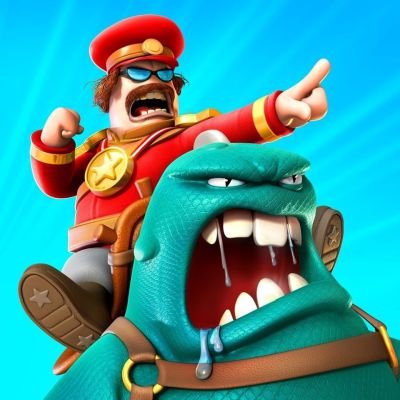Jam City
(Jul 2018 to Apr 2020)
I worked on the game World War Doh in the Bogota branch of Jam City.
I started as a QA Lead, later working as an Associate Producer.
Here I explain what I did on those roles
Associate Producer
June 2019 - April 2020
My main responsibility was to make sure that the team in Bogota finished their tasks on time. To achieve this I had to check the progress of the development team every day. If they needed anything to finish their tasks I worked to get them this, be it a license for a software, devices to test or communicating with a person from another team or company. I also helped them test their features and bugs until everything was done.
The team I managed changed size during the development process, going from 10 to 14 people. I was in charge of creating and assigning the tasks and user stories for all the developers in Bogota. I used Jira to keep track of everything in the game.
Another one of my tasks was coordinating with the QA team. FIrst we worked with a team in Argentina, but later we started working with a team in India. This meant we had to coordinate work in different time zones and in english.
QA Lead
July 2018 - June 2019
As a QA lead I was in charge of designing the test plans and coordinating with the testers in Argentina.
The week before the end of the sprint I would speak with the creative director and the lead game designer to plan the feature for the next sprint. With this knowledge I designed a test plan for these new features and issues we fixed during the current sprint.
While the team in Argentina performed the test plan I helped the team by performing tests for issues that appeared during development. I did this by using devices and in the editor.
-
Jam City is a mobile video game company based in the USA but that recently opened a studio in Bogota, Colombia. I started working there as a tester, quickly I became the QA lead and eventually the associate producer of the game World War Doh.
Fun fact about how I entered Jam City: In 2018 Jam City Bogota studio was born from the acquisition of the former colombian company Brainz. This company had a contract with another company to make a game before the acquisition of the studio. I entered Brainz as a tester to help finish that game and it was a very heavy crash course due to all the weird bugs that appear every day. It’s also worth mentioning that due to the acquisition the idea was to finish this game ASAP, which rushed the process quite a lot. After we finished this game I was formally moved to Jam City as the QA Lead.
At the beginning there was only one tester in Tokyo helping us and myself, meaning I had to help all the developers check their features and do a comprehensive test each day. It was quite brutal to be honest, but after a month or so of going like this, a QA team from Argentina started working with us. Thanks to that I didn’t have to do as many tests but I had to prepare all the test cases and organize the QA team to test everything we needed and check we were up to schedule. This was the first time I had to manage such a big team and also was the first time I was completely responsible for a section of the development which was a great challenge I didn’t expect. To be able to answer all these new responsibilities I had to do a lot of extra hours until I grew used to this position but eventually I did.
As time passed I began accepting extra responsibilities to help relieve workload, but also took on new work that didn’t exist before the game entered the early access stage. Eventually, it became clear to my bosses that I wasn’t just the QA Lead anymore and they formally gave me the position of Associate Producer. With the new role I became responsible for organizing the whole team in Bogota as well as the QA team which had grown over time and would continue to grow thereafter. This was the most physically taxing period of my life, having to work extra hours in order to have the requirements asked by the stakeholders. Though it was hard, I was excited the project was progressing and finally released in February 2020.
At the end of the day I learned to work under pressure and manage big teams. I also learned the importance of having a healthy game development process by balancing the production flow with the creative process, as the game designer will always try to make the best game possible and the Producer will try to stay on schedule and reduce risks.



